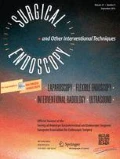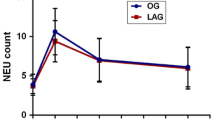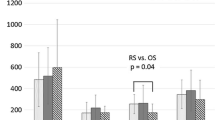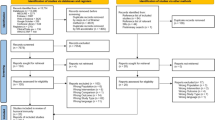Abstract
Background: Surgical trauma and anesthesia are known to cause transient postoperative suppression of the immune system. In randomized controlled trials, it has been shown that laparoscopic colorectal resections have short-term benefits not observed with conventional colorectal resections. We hypothesized that these benefits were due to the reduction in surgical trauma, leading to a diminished cytokine response and less depression of cell-mediated immunity after laparoscopy. Methods: In a prospective randomized trial, colorectal cancer patients without evidence of metastatic disease underwent either laparoscopic (n = 20) or conventional (n = 20) tumor resection. Postoperative immune function was assessed by measuring the white blood cell (WBC) count, the CD4+ and CD8+ lymphocytes, the CD4+/CD8+/ratio, and the HLA-DR expression of CD14+ monocytes. In addition, the production of interleukin-6 (IL = 6) and TNF-a were measured after ex vivo stimulation of mononuclear blood cells with lipopolysaccharide (LPS) and compared to the plasma levels of these cytokines. Postoperative mean levels of the immunologic parameters for the two groups were calculated and compared using the Mann-Whitney U test. Results: Preoperatively, there were no differences between the two groups in terms of patient characteristics or immunologic parameters. Although the postoperative peak concentrations of white blood cells were significant lower in the laparoscopic group than the conventional group (p < 0.05), there were no differences between the two groups in the subpopulation of lymphocytes (CD4+, CD8+). HLA-DR expression of CD14+ monocytes was lower in the conventional group on the 4th postoperative day (p < 0.05). The laparoscopic group showed higher values in cytokine production of mononuclear blood cells after LPS stimulation. Postoperative plasma peak concentrations of IL-6 and TNF-a were lower after laparoscopic resection. Conclusion: Postoperative cell-mediated immunity was better preserved after laparoscopic than after conventional colorectal resection. Cellular cytokine production was preserved only in the laparoscopic group, while cytokine plasma levels were significantly higher in the conventional group. These findings may have important implications for the use of laparoscopic colorectal resection, especially in patients with malignant disease.
Similar content being viewed by others
Author information
Authors and Affiliations
Additional information
apd: 3 April 2001
Rights and permissions
About this article
Cite this article
Ordemann, J., Jacobi, C., Schwenk, W. et al. Cellular and humoral inflammatory response after laparoscopic and conventional colorectal resections. Surg Endosc 15, 600–608 (2001). https://doi.org/10.1007/s004640090032
Received:
Accepted:
Published:
Issue Date:
DOI: https://doi.org/10.1007/s004640090032




